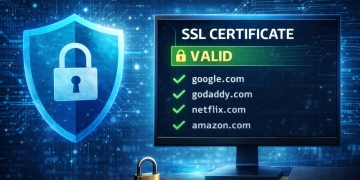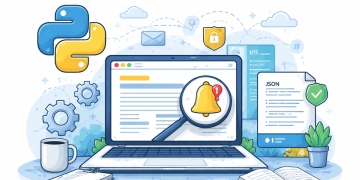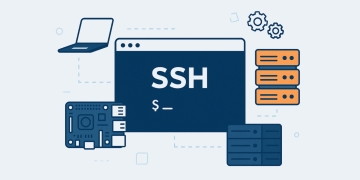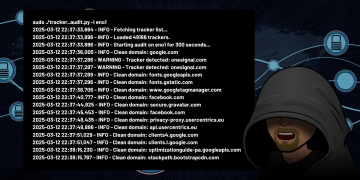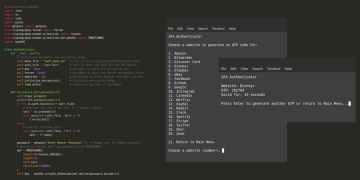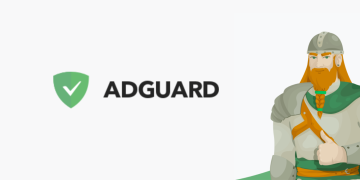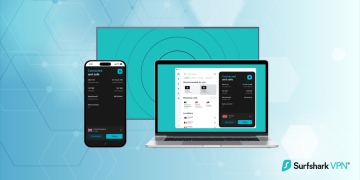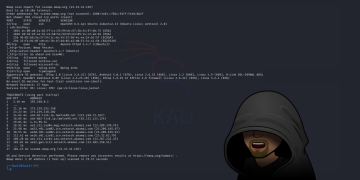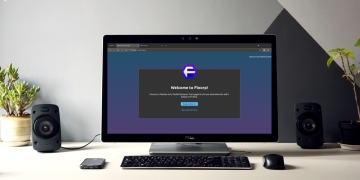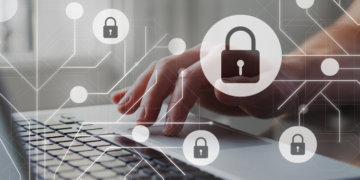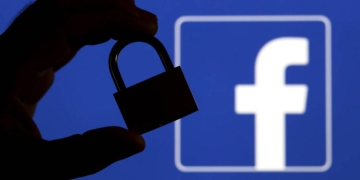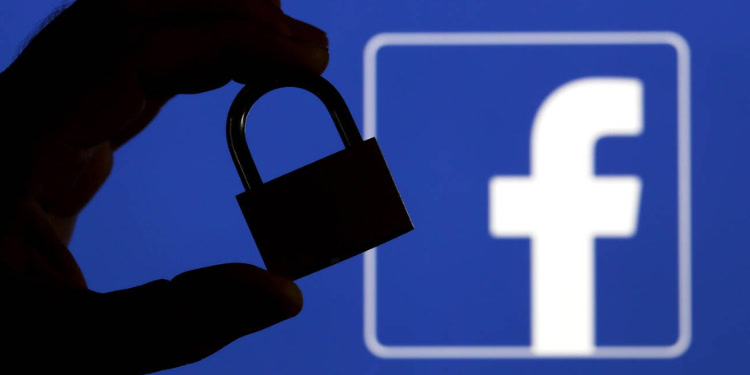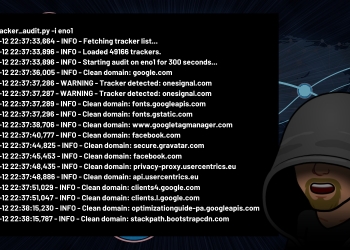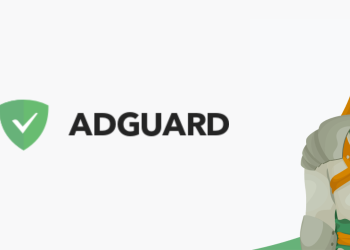In the vibrant, constantly evolving world of digital communication, safeguarding your Facebook account has become an essential priority. Social media has emerged as a dominant force shaping our interactions, and platforms like Facebook offer unprecedented opportunities to connect, share, and learn, transcending geographical boundaries and redefining our understanding of communities. However, along with these opportunities come new challenges, particularly in the realm of digital security.
Facebook, with its billions of active users, provides a lucrative hunting ground for cybercriminals, making it a prime target for a range of cyberattacks. Among these, account hacking and profile cloning are two prevalent issues that users often encounter. Each poses a unique threat to the security and privacy of your online identity.
In simple terms, account hacking is a scenario where a malicious entity gains unauthorized access to your account, usually by obtaining your login credentials. On the other hand, profile cloning, also known as profile impersonation, is when someone creates a new account using your name and pictures to deceive others into thinking it’s you.
Both hacking and cloning carry potential risks. From impersonation to identity theft, from the violation of privacy to the spread of misinformation, the effects can be harmful and far-reaching. Hence, it’s of utmost importance to understand the nuances of these threats, how they occur, their potential impacts, and most importantly, how you can protect yourself against them.
This comprehensive guide aims to elucidate the differences between a hacked Facebook account and a cloned Facebook profile. It will also provide effective strategies for safeguarding your Facebook account and preventing such breaches, ensuring that your digital social life continues to be a safe and enjoyable experience. As we dive into the depths of this subject, remember that knowledge is the first step toward protection in the digital landscape.
Hacked Facebook Account – An In-Depth Look
A hacked Facebook account is an issue that occurs when your login credentials fall into the hands of someone who shouldn’t have them. These unauthorized individuals, commonly known as hackers, gain access to your Facebook account by compromising your username and password. The hackers might use various tactics, ranging from sophisticated software that deciphers passwords to elaborate phishing scams that trick you into voluntarily providing your login details. In some cases, they might use malicious software, known as malware, which can secretly capture your keystrokes to gather your account credentials.
Upon gaining access to your Facebook account, these hackers can then take several actions that cause a lot of harm. They can impersonate you by sending messages to your contacts or posting updates on your timeline, all under your identity. They might also misuse your personal information or even alter your account settings, leaving you unable to regain control over your account. The most alarming aspect is that you might not realize your account has been hacked until considerable damage has been done.
The implications of a hacked account extend beyond losing control of your profile and the potential for identity theft. Once a hacker gains access to your account, they can easily exploit your network of contacts. They can send scam messages, spread malware, or even carry out phishing attempts, putting your friends and family at risk.
Cloned Facebook Profile – The Impersonation Threat
A cloned Facebook profile, on the other hand, is an impersonation of your profile by another individual. In contrast to hacking, this does not involve unauthorized access to your account. Instead, the impersonator creates a new Facebook profile using your name and copies your profile picture. They may even replicate some of your public posts and other information available on your profile to make it appear more legitimate. However, they do not have access to your private messages, your friend list, or any other sensitive information stored in your actual Facebook account.
The primary purpose of a cloned profile is to deceive your friends into believing that this false account is yours. Once they succeed in tricking your friends into adding the fake profile as a friend, the impersonator can then exploit this trust. They may begin sending phishing links or engaging in scams under the guise of your identity. In some instances, they might even ask your friends for money, leading to financial fraud. Though less intrusive than hacking, profile cloning can create confusion and cause significant harm, especially if your friends are not aware of such threats.
How to Protect and Prevent Your Facebook Account from Being Hacked
In today’s digital era, maintaining robust security for your Facebook account is not a mere recommendation but a necessity. Cybercriminals have grown increasingly sophisticated, employing a wide range of tactics to gain unauthorized access to your personal and sensitive data. The fear of having your account hacked is not unfounded, considering the damaging impact it can have on your personal and professional lives. However, knowledge is power, and understanding the potential threats is the first step toward securing your Facebook account. This section aims to provide comprehensive insights into several vital strategies to protect your Facebook account from being hacked. These strategies, when combined, form a strong defensive shield against potential hackers, safeguarding your online presence.
Strong and Unique Passwords
In the realm of digital security, passwords serve as the first line of defense, guarding your personal and sensitive information. Therefore, the strength and uniqueness of your passwords can often determine your vulnerability to hacking attempts.
Password Strength
A strong password is akin to a robust lock that’s hard to pick. The more complex the password, the tougher it is for cybercriminals to decipher it. A strong password typically consists of a minimum of 12 characters, but the longer, the better.
Utilize a mix of different types of characters to further enhance the strength of your password. This mix should include uppercase letters, lowercase letters, numbers, and special symbols. The rationale behind this is simple: the wider the variety of characters used, the more combinations a hacker’s program would have to run through to crack your password.
Avoid using common phrases, sequential numbers, or repetitive characters, as they are often the first to be checked by hacking software. It’s also advisable to steer clear of using personal information like your name, birth date, or pet’s name as part of your password. Such information can be easily obtained by hackers, especially in the age of social media, where personal details are often shared publicly.
Password Uniqueness
Having a strong password is vital, but it’s equally important to ensure that it’s unique. Password uniqueness means that you shouldn’t reuse the same password across multiple websites or platforms. If a hacker gains access to one of your accounts, they could potentially use the same password to gain access to your other accounts.
A significant challenge many people face is remembering unique passwords for each account, especially if each password is strong and thus complicated. This is where password managers come in handy. A password manager is a secure tool that generates and stores unique, complex passwords for each of your online accounts. They often come with strong encryption, meaning that even if someone gains access to your password manager, they still won’t be able to decipher your passwords.
Related Article: Creating Strong Passwords: Factors, Best Practices, and Mistakes to Avoid
Two-Factor Authentication (2FA)
Two-Factor Authentication, or 2FA, adds an extra layer of security to your account. It’s a simple yet highly effective way of preventing unauthorized access, even if your password is compromised. This is why it has become a widely recommended practice in digital security.
The logic behind 2FA is that it relies on two distinct forms of identification. The first factor is ‘something you know,’ which is your password. The second factor is ‘something you have.’ For Facebook, this often means a unique verification code that is sent to a device in your possession, such as your smartphone.
Let’s go a little deeper into how it works.
When you set up 2FA on your Facebook account, you link it to a specific device, usually your mobile phone. Once 2FA is enabled, every time you or someone else attempts to log in to your Facebook account from a new device or browser, Facebook will require the second form of authentication, the unique verification code. This code will be sent via SMS to the mobile number associated with your account.
Without this code, the login attempt will be unsuccessful, even if the correct password is entered. This means that if a hacker were to get hold of your password, they still wouldn’t be able to gain access to your account without the verification code sent to your phone.
Another 2FA method that Facebook provides is the use of third-party authentication apps such as Google Authenticator or Duo Mobile. When you attempt to log in, these apps generate a unique code that you can use for second-factor authentication. This method does not rely on receiving an SMS and can be used even when your phone doesn’t have a network connection.
Implementing 2FA is an easy process. On Facebook, you can enable it by going to ‘Settings & Privacy‘ > ‘Settings‘ > ‘Privacy‘ > ‘Password and security‘ > ‘Password and security‘ > ‘Two-factor authentication‘. Facebook provides a clear and easy-to-follow process to set this up.
It’s important to remember that while 2FA significantly increases your account’s security, it doesn’t guarantee full protection. It’s best used in combination with other security practices, such as strong passwords, regular account reviews, and security alert settings.
By understanding and using tools like 2FA, you can make it much harder for unauthorized users to gain access to your Facebook account. And in the world of digital security, every layer of protection helps.
Beware of Phishing Attempts
Phishing is a fraudulent practice where cybercriminals attempt to gather personal and sensitive information from individuals. This information typically includes login credentials, credit card numbers, or other forms of identification. They achieve this by disguising themselves as trustworthy entities and prompting you to reveal sensitive information.
In the context of Facebook, phishing attempts often take the form of deceptive emails or messages that appear to be from Facebook. These messages may create a sense of urgency, suggesting that your account is at risk or claiming there has been suspicious activity that requires your immediate attention. They usually contain a link that directs you to a webpage where you’re asked to enter your login credentials and sometimes other personal information.
While these phishing attempts can sometimes look convincing, there are signs you can look for to identify them:
- Check the sender’s email address: Official emails from Facebook come from an “@facebook.com” email address. Be wary of emails from unfamiliar addresses or addresses that try to mimic the official ones.
- Look out for poor grammar and spelling: Professional organizations usually have high standards for communication. Errors in grammar or spelling can be a red flag that the email is not from an official source.
- Never share your password: Remember, Facebook will never ask for your password via email or message. If you see an email asking for your password, it is almost certainly a phishing attempt.
- Inspect the included links: If an email includes links, hover over them with your cursor (without clicking). This will reveal the actual web address the link will take you to. If the address doesn’t include “facebook.com,” be very cautious.
If you have any doubts about the authenticity of an email or message claiming to be from Facebook, it’s best to avoid clicking any links it contains. Instead, log into your Facebook account directly and check your notifications or account settings for any reported issues. If there are no notices there, the email or message was likely a phishing attempt.
It’s also a good idea to report any suspected phishing attempts to Facebook. This can help protect other users from falling victim to the same scam. Additionally, be sure to delete the phishing email or message to avoid accidentally clicking any links it contains later.
In a broader context, always be cautious when asked to provide sensitive information online. Always confirm that you are interacting with a legitimate and secure website before entering any personal details. This is especially important when the information is related to financial transactions or contains login credentials. A good rule of thumb is to always double-check and maintain a sense of skepticism when things appear suspicious.
Secure Your Devices
The security of your devices plays a fundamental role in safeguarding your Facebook account from potential breaches. When your device is compromised, the safety of all your applications and data, including your Facebook account, is jeopardized. Here are some key strategies to ensure the security of your devices:
Keep Your Operating Systems and Apps Up-to-Date
Software updates are not just about adding new features. They often include patches for security vulnerabilities that have been discovered since the last version of the software was released. By promptly updating your operating systems and apps, you ensure that you’re protected from these known vulnerabilities.
This applies not just to your device’s operating system but also to the apps installed on your device, including your web browsers. Cybercriminals often exploit vulnerabilities in outdated browsers.
Use Antivirus and Anti-Malware Software
Reliable antivirus and anti-malware software are essential tools to protect your devices. These tools monitor your system for known threats and warn you if any are detected. They also perform regular scans of your system to check for malware.
Some antivirus software also includes additional features, such as email scanning, website rating, and phishing protection, which provide additional layers of protection.
Avoid Public Wi-Fi for Sensitive Tasks
Public Wi-Fi networks, like those at a coffee shop or airport, are often unsecured, which makes it easier for hackers to intercept the data sent from your device to the router. If possible, avoid logging into your Facebook account or conducting any sensitive transactions, like online banking, when connected to a public Wi-Fi network.
If you need to use public Wi-Fi, use a virtual private network (VPN). A VPN encrypts your data, making it much harder for anyone else to view it.
Use Device Encryption
Device encryption converts the data on your device into a form that can only be read with the correct credentials. If your device is lost or stolen, encryption will protect your data, ensuring that your Facebook account and other sensitive information remain secure.
Both Android and iOS have built-in device encryption options, which can usually be enabled through the device’s security settings.
Lock Your Devices
Always lock your devices when they’re not in use. If your device falls into the wrong hands, a password, pin, or biometric security measure can be the last line of defense for your data.
For an added layer of security, consider setting your device to automatically wipe all data after a certain number of incorrect login attempts. This can prevent someone from gaining access to your Facebook account and other sensitive data if your device is stolen.
How to Protect and Prevent Your Facebook Profile from Being Cloned
While a hacked Facebook account often garners a lot of attention, another threat that is equally disturbing is profile cloning. Facebook profile cloning is a form of identity theft where scammers create a fake Facebook profile by using images and other information stolen from a targeted user’s profile. Unlike hacking, cloning doesn’t provide the scammer access to the original user’s account, but it can cause significant damage, especially when used to scam the user’s friends or spread misinformation. Protecting against cloning requires a different set of strategies compared to protecting against hacking, given the difference in their operations. This section aims to elaborate on effective measures that can help prevent your Facebook profile from falling prey to cloning, ensuring a safer and more secure social media experience.
Adjust Your Privacy Settings
Adjusting your privacy settings on Facebook is a key strategy to mitigate the risk of your profile being cloned. These settings control who can see your information and how they can interact with you on the platform. By carefully configuring your privacy settings, you can make it considerably harder for imposters to access the information they need to clone your account.
Limit Your Audience
One of the most effective measures to protect your profile is to restrict the audience that can view your posts, photos, and other personal information. Facebook allows you to customize who can see your future posts and the posts you’re tagged in. Navigate to ‘Settings & Privacy‘ > ‘Settings‘ > ‘Privacy‘ and adjust the settings for ‘Your Activity‘ and ‘How People Find and Contact You.‘ Change these to ‘Friends Only‘ or ‘Only me‘ to limit the visibility of your information.
Manage Your Friends List
Your friends list can provide a treasure trove of information for someone attempting to clone your account. By copying your friends list, a scammer can target your friends with friend requests from the cloned account. To counter this, you can hide your friends list from public view. Under ‘Settings & Privacy‘ > ‘Settings‘ > ‘Privacy’, you can adjust ‘Who can see your friends list?‘ to ‘Only me‘.
Profile Picture and Cover Photo
Your profile picture and cover photo are always public for technical reasons, according to Facebook’s policies. However, you can still control who can like, comment on, or share these public photos. To do this, go to each photo and adjust the audience for it. You may also consider watermarking these images. A watermark makes it more difficult for scammers to use your image without raising suspicion.
Review Your About Info
Your ‘About‘ section contains a wealth of personal information that could be used by someone attempting to clone your profile. This can include your workplace, education, contact information, and other details. To secure this, go to ‘Settings & Privacy‘ > ‘Settings‘ > ‘Your Facebook Information’, then select ‘Access Profile Information‘ and click on ‘View’. Here, you can review the details and adjust the visibility settings accordingly.
By taking control of your privacy settings, you minimize the information available to potential cloners, making it significantly harder for them to create a convincing copy of your profile. Regularly review and update your privacy settings to ensure optimal security as Facebook updates its features and policies.
Be Selective With Friend Requests
Being selective with friend requests is an important practice to guard your Facebook profile against cloning and other potential threats.
Know Who You’re Accepting
Before accepting any friend requests, ensure you personally know or can vouch for the individual. It can be tempting to grow your Facebook friends list for networking or social reasons, but it’s safer to limit your connections to people you genuinely know and trust.
Verify Duplicate Friend Requests
If you receive a friend request from someone you’re already connected with on Facebook, be cautious. This could be a sign of a cloned profile. Don’t rush to accept the request. Instead, reach out to your friend outside of Facebook to verify if they have created a new account. If they haven’t, the friend request is likely from a cloned profile.
Analyze New Friend Requests
When you receive a friend request from someone you don’t recognize, it’s worth taking a few extra minutes to analyze their profile before accepting the request. Look for signs that could indicate a fake profile, such as a recently created account, few friends, or no mutual friends. A lack of a profile picture, or only one picture, and minimal personal information on their profile are also red flags. If the profile looks suspicious, it’s safer to decline the friend request.
Educate Your Friends
You can also help prevent profile cloning by educating your friends about this issue. Encourage them to be careful about who they accept friend requests from and to verify any duplicate friend requests. A collective effort can drastically reduce the success of cloning attempts.
Being selective with friend requests is not about being unfriendly. It’s about exercising due diligence to protect your online presence and the safety of your Facebook community.
Regular Self-Search
Regular self-searching is a proactive approach to spotting a cloned Facebook profile. Since a clone profile is essentially an impersonation of your account, conducting periodic searches for your name on Facebook can help identify any suspicious profiles that are using your identity.
A self-search is as simple as typing your name into the Facebook search bar and reviewing the search results. Take note of the profiles that appear, particularly any that use your profile picture, or a variation of it, and your name. However, bear in mind that a cloned account may not always use an exact replica of your current profile picture; they could potentially use an older photo or another image associated with you.
If you encounter a profile that appears suspiciously similar to your own, navigate to the profile and examine it. Look for any irregularities, such as a very recent creation date, a few friends or posts, or posts that mimic your own activity in a strange or awkward way.
If you’re still uncertain whether a profile is a clone, reach out to some mutual friends (if there are any) to verify whether they’ve had any unusual interactions with that profile.
In the event that you confirm that a profile is impersonating you, report it to Facebook immediately. Facebook takes identity impersonation seriously and has procedures in place to handle such incidents. You can report a profile through the ‘…‘ menu on the profile page, then follow the prompts for ‘Report.’
Conducting regular self-searches on Facebook should be a part of your routine online safety practices. Although it might seem a bit time-consuming, it’s a practical way to catch impersonators quickly and prevent any potential damage they could cause by exploiting your online identity.
Conclusion
As we’ve explored in this article, protecting your online identity in an interconnected world carries an importance that cannot be understated. This is particularly relevant when using platforms like Facebook, where the personal intersects with the public. Understanding the nuances of digital threats such as account hacking and profile cloning is the first step in safeguarding your virtual persona.
When it comes to a hacked Facebook account, the intruder has direct access to your personal information, interactions, and even your friends list. The effects can range from an invasion of privacy to potential financial fraud, creating a significant breach in your personal security. Employing protective measures like using strong, unique passwords, enabling two-factor authentication, staying vigilant against phishing attempts, and securing your devices can fortify your account against such attacks.
Profile cloning, on the other hand, doesn’t compromise your account directly. Instead, it involves impersonation, where a duplicate profile is created using your publicly available information. Although this might seem less intrusive than hacking, the implications can still be severe, potentially damaging your reputation and duping your friends into revealing sensitive information. Therefore, adjusting your privacy settings, being selective with friend requests, and performing regular self-searches are pivotal in mitigating this risk.
In the grand scheme of digital security, both hacking and cloning represent just two facets of a larger, complex landscape. As cybercriminals continue to evolve their tactics, so must our strategies to protect ourselves.
Remember, the cornerstone of digital security is not just about employing advanced protective measures but also maintaining a conscious, consistent practice of safe online behavior. While technology platforms like Facebook provide us with a plethora of security measures, it’s ultimately up to us to make full use of them.
The digital realm offers immense possibilities, enabling us to connect, share, and grow. Yet, it is our responsibility to navigate this space with caution and awareness, safeguarding our invaluable personal data and maintaining the integrity of our online presence. It’s a journey that demands consistent learning and adaptation, but it’s certainly worth it for the security and peace of mind it brings. As we continue to engage in this connected world, let us do so with vigilance, knowledge, and confidence, ensuring a safe and secure digital life.


